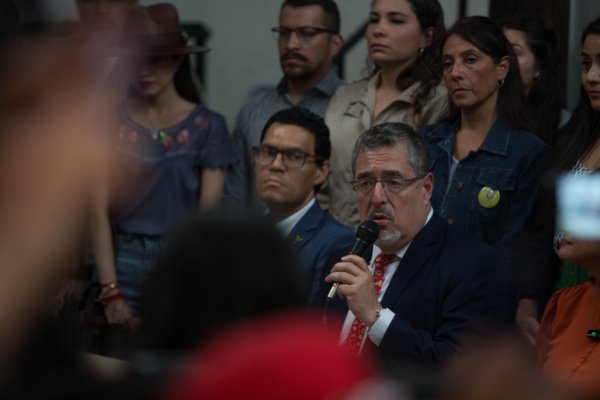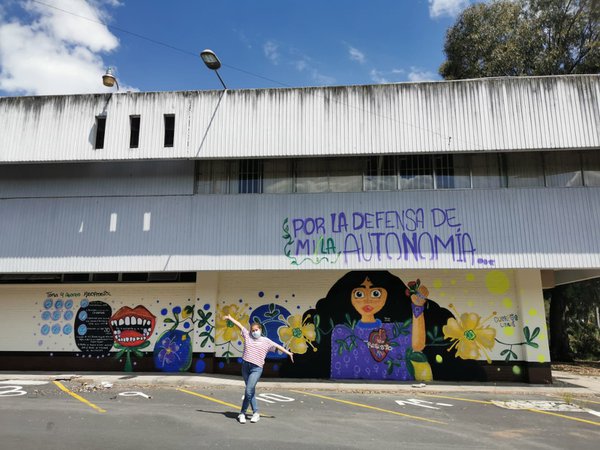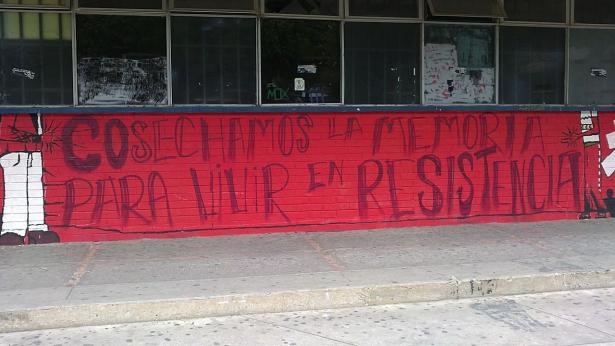The far right in Guatemala is increasing its efforts to prevent progressive President-elect Bernardo Arévalo from taking office. On November 17, Guatemala’s unpopular Attorney General’s office officially requested to strip Arévalo, Vice President Karin Herrera, and congressional representatives of their immunity, opening them up for investigation for supporting student protests in 2022.
“What we are seeing here is yet another weak and illegitimate case [against Arévalo]. It is absurd,” Marielos Chang, an independent political analyst, tells The Progressive. “The case that the MP [Public Prosecutor’s Office] has presented is trying to generate fear in the people who are protesting.”

Guatemala’s president-elect Bernardo Arévalo of the Movimiento Semilla Party addresses the press on July 12, 2023 (Jeff Abbott)
Attacks against the democratic process have steadily increased since Arévalo’s surprise success in the first round of voting in the presidential election on June 25. First those opposed to Arévalo tried to convince voters he was a “communist” and a “threat to the Christian religion,” but he still won the presidency in a landslide in a runoff on August 20. Then prosecutors aligned with those seeking to maintain corruption and impunity sought to stoke fears of a conspiracy of fraud, but the population came out to the streets to condemn the attempted coup d’état.
The charges against the students stem from protests that erupted in 2022 against the fraudulent election of Walter Mazariegos as the rector of Guatemala’s national (and only) public university, the University of San Carlos (USAC).
The elections came down between Jordan Rodas, the country’s former Human Rights Ombudsman and a widely popular candidate to head the university against Mazariegos. But according to students and teachers, there was massive fraud involved in the election, which saw Mazariegos gain the rectorship.
Driven by the legitimate accusations of fraud, students and professors protested. The main campus of the university was occupied for nearly a year.
Throughout the case, the Public Prosecutor’s Office has sought to criminalize Arévalo and other members of his party for their support of students and the protests, even though other ruling party candidates participated in forums with students at the time. The case focuses heavily on tweets from Arévalo, Herrera, and other politicians, causing concern over a crackdown on freedom of speech.
Guatemala awoke on November 16 to a series of massive raids by the country’s Public Prosecutor’s Office. While embedded corruption and the influence of drug traffickers in the Central American country would be among the alleged reasons for the raids, the reality is that the efforts were targeting student activists who have protested against the problematic election of the rector of San Carlos University.
In total, six people of the twenty-six with arrest warrants were detained for their alleged part in occupying the university. Among those were three professors and Marcela Blanco, a twenty-three-year-old student from the private Rafael Landivar University who was also a congressional candidate for Arévalo’s Movimiento Semilla Party.
The six who were detained are facing charges of aggravated usurpation on a continuous basis, destruction of cultural property on a continuous basis, sedition, and illicit association.
The recent arrests of opposition candidates, students, and professors have a haunting resonance in Latin America. These arrests echo similar tactics used by the government of Daniel Ortega and Rosario Murillo in Nicaragua, which has sought to crush student movements along with the Catholic Church as part of their effort to establish their authoritarian regime in the Central American country.
“The Dictators playbook is similar,” Chang says.
“What we are seeing in Nicaragua is comparable to what is happening in Guatemala,” she explains. “We have seen how students were imprisoned for crimes of sedition, for disturbing public order, or for precisely destroying cultural property for challenging Daniel Ortega.”
Guatemala’s continuing worsening of the political crisis is poised to intensify the causes of emigration from the country, especially to the United States, an expert on immigration from Guatemala, tells The Progressive. He requested anonymity due to the recent attacks on critical voices from the country’s Public Prosecutor’s Office.
“There are already dozens of people who have been leaving,” he says, including those who work in the courts and Public Prosecutor’s Office opposed to the attorney general, journalists, and human rights defenders. “At the end of the day, the message is, ‘look, no one here is invulnerable,’ and the Public Prosecutor’s Office will create a case for them here and [in order to] ruin them.”
In the past four years, nearly three dozen journalists, activists, judges, prosecutors, investigators, and former government officials are known to have been forced to flee the country due to spurious charges brought against them by the Public Prosecutor’s Office led by Attorney General Porras. The latest wave of criminal charges has once again pushed many to flee the country.

Mural reading "For the defense of my autonomy"at the Faculty of Law building, USAC, September 28, 2022 (Fede Ratas, CC0).
Camilo García, a student leader, was expelled from USAC for participating in the 2022 protests against election fraud. The MP sought to arrest him on November 16, but he left Guatemala prior to the charges. “We are being criminalized for defending [a public education] institution and its autonomy,” García stated in a post on his social media condemning the raids and the arrests. “It is clear to us that this is not a time to remain silent.”
But for rural communities abandoned by the Guatemalan state, the situation is far worse. The political instability, lack of opportunities and access to justice is further eating away at hopes for a better future.
“It is not just the material economic need or lack of political [and social] freedoms, but hopelessness is something that triggers people's desire to leave,” the anonymous Guatemalan expert explained, detailing his experience working in rural Indigenous communities. “And emigration is increasing. We cannot say in what numbers, but it is increasing. It can be felt with the lack of workers [in parts of the country like Huehuetenango].”
He adds, “Guatemala, as it appears, is a hopeless country.”
Jeff Abbott is an independent journalist currently based out of Guatemala. “The Other Americans” is a column created by Abbott for The Progressive on human migration in North and Central America.
Since 1909, The Progressive has aimed to amplify voices of dissent and those under-represented in the mainstream, with a goal of championing grassroots progressive politics. Our bedrock values are nonviolence and freedom of speech. Based in Madison, Wisconsin, we publish on national politics, culture, and events including U.S. foreign policy; we also focus on issues of particular importance to the heartland. Two flagship projects of The Progressive include Public School Shakedown, which covers efforts to resist the privatization of public education, and The Progressive Media Project, aiming to diversify our nation’s op-ed pages. We are a 501(c)(3) nonprofit organization.


Spread the word